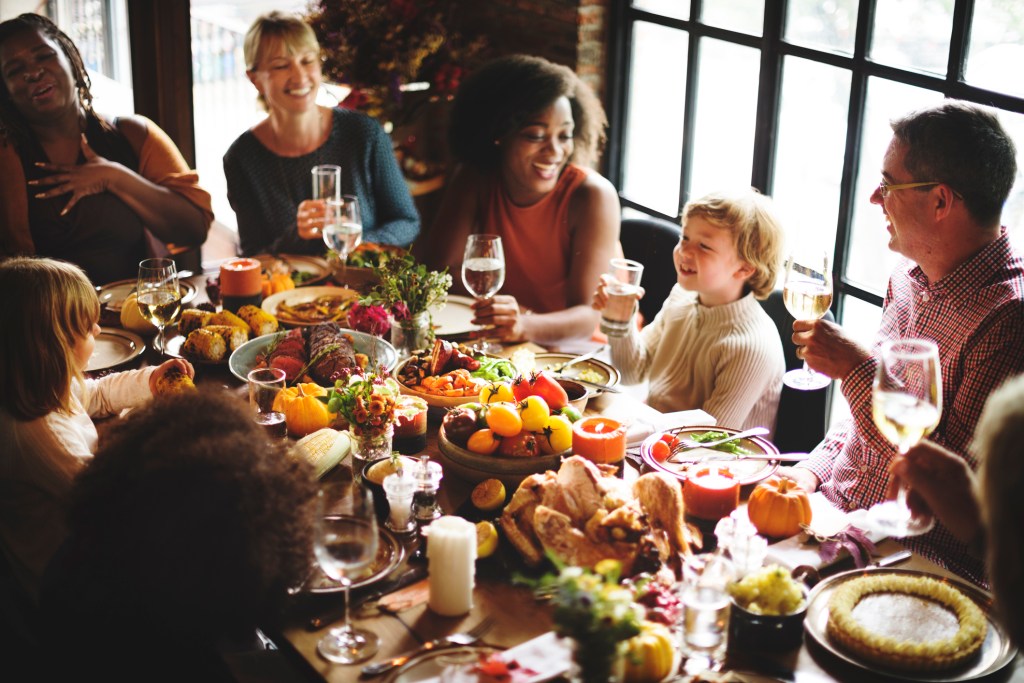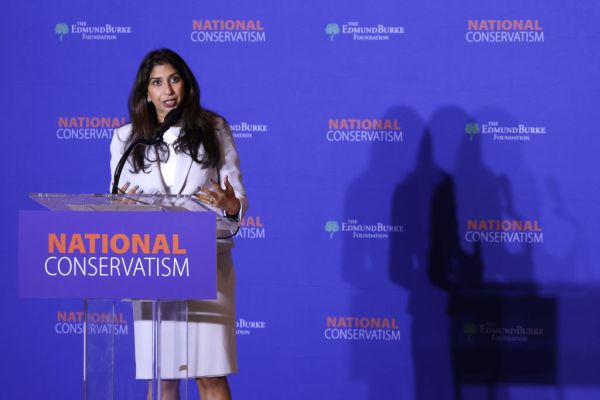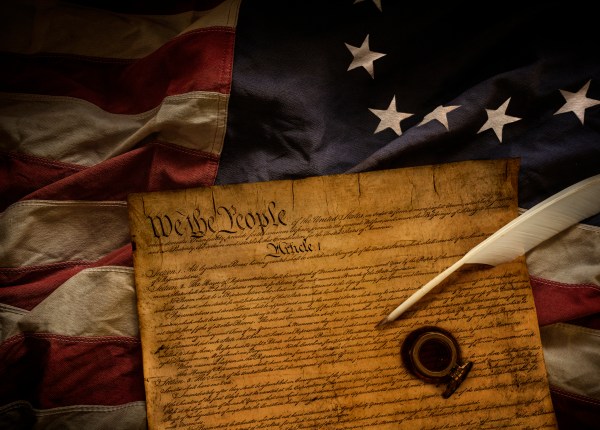Not that you asked, but here are two pieces of Thanksgiving advice: 1) Don’t talk about politics; 2) Don’t Instagram your turkey.
The weird thing is, I suspect that the problems we seem to have with No. 1 are related to No. 2.
There are all kinds of good reasons not to talk about politics at Thanksgiving. One is that you probably don’t have anything very interesting to say and, even if you do, nobody really wants to hear it. They might put up with listening to your political pronouncements as the necessary price for the exquisite joy of then listening to themselves hold forth, but nobody wants to listen to you. I do this stuff for a living and, from time to time, somebody will write me a non-trivial check to come talk about politics for an hour or two at the annual chicken dinner of the This-’N’-That Society—which is to say, I am market-tested, and I’m pretty sure nobody wants to hear me talk about politics at Thanksgiving dinner, either. I have deduced this from the fact that, when the subject has come up in the past, the party who brought politics up in the first place almost never really listens to anything anybody else has to say. (My standard line when somebody tries to bait me into a political debate is, “I’m a professional; I only do this when I’m getting paid.”) That guy at Thanksgiving doesn’t want to hear my homily about how Hayekian epistemic principles should limit the scope of our ambitions for health care reform—he wants someone to confirm how smart and interesting he is.
Which is to say, he wants you to do with his political sensibilities what other people want you to do with their Instagram turkeys or their vacation pictures: look, admire, and comment.
But the kind of jolt people get from social-media likes is not what Thanksgiving is for.
Thanksgiving is, among other things, a reminder of the pleasures of private life, which are almost always superior to their public and commercial competitors. Dinner at home with family and friends is better than dinner at the best restaurant in New York City or London. Sleeping in your own bed is better than a suite at the Ritz-Carlton. Because we moderns—especially we modern Americans—have a disordered relationship with the idea of luxury, we get this all backward. Our Puritan ancestors, and the Stoics before them, were right to be suspicious of the pursuit of luxury, particularly when that pursuit takes the form of crass competition and one-upmanship. It distorts the normal, healthy enjoyment of life’s material blessings.
Especially at this time of year, a fire and a book and children and a dog in one’s own home are nonpareil pleasures. I am not saying everybody should move into a cabin in the woods: There is a reason the very wealthy use their money to expand the scope of their private lives: private jets, private clubs, or, if you’ve really got piles of it, private islands. But the point isn’t to have a gold-plated toilet on your personal 747—the point is to have things just the way you like them.
I read a bizarre story a few months ago about private-jet owners who make a little money back on their travel by renting their planes out between flights—for substantial amounts of money—to would-be social-media influencers who simply want to be photographed inside them, pretending to be flying. Figuring out how to make $10,000 or $20,000 from your private jet while it is grounded for a weekend in Van Nuys is, I suppose, what makes someone the kind of person who can afford a private jet. But I do not get the demand side of that market.
The guy who posts Instagram pictures of himself on a private jet doesn’t know what a private jet is for, because he doesn’t know what private life is for—what he wants is to be envied. Fake wealth isn’t going to solve his problem–but neither is real wealth. His orientation is fundamentally exterior and public, dominated by the desire to be seen and by the need to see himself through the eyes of others, as though he would cease to exist if he ceased being looked at. As David Foster Wallace pointed out in a memorable passage in Infinite Jest, the ache that envy makes us feel turns out not to have a reciprocal: There isn’t actually any pleasure or joy in being envied. The man who spends his time and energy manufacturing advertisements for his own (supposed) happiness is not made larger by the attention of others but instead is made smaller by his desperate scrambling after it.
There is a difference between living one’s life and performing it. Performing life for some unseen audience on social media is perverse. Every time I hear someone use the term “personal brand,” I cringe a little. That is the worst kind of faux-sophistication, and it speaks to a real deficiency in the interior life.
At the heart of Thanksgiving is that most private of virtues: gratitude. Of course, we express our gratitude, especially to those to whom we have some particular reason to be grateful. And performative gratitude can be gross and irritating, too. (“#blessed.”) But unlike admiration, gratitude is all yours. Gratitude is your soul’s own private property—admiration, in contrast, belongs to everybody else, and the person who needs it for that reason also belongs to everybody else. Ten thousand “likes” on your photo of your vacation spot or (angels and ministers of grace, defend us!) your brunch are not going to make you whole, happy, or satisfied.
Neither is browbeating Aunt Jenny over the next election, no matter how smart you think it makes you look to everybody else at the dinner table. And for whose sake are you getting all riled up? Is it for the benefit of the country, or for the benefit of your audience? Or is it to scratch some private itch that you don’t quite understand? Because the thing is, neither your country nor your audience is probably getting much benefit out of the performance. And, though it may seem otherwise at some superficial level, neither are you.
The outside world will still be there on Monday, even if the wrong guy is president of the United States. But there is a world right there within your four walls, and it is full of wonderful things. Yes, we must do our part, but Providence has not let us down so far, and if you are lucky enough to have a family and friends to share the day with, then hold them close. The best things in life may not be free, but they are not far away. To love them simply for who and what they are is a gift you can give yourself—one nobody else can give you.









Please note that we at The Dispatch hold ourselves, our work, and our commenters to a higher standard than other places on the internet. We welcome comments that foster genuine debate or discussion—including comments critical of us or our work—but responses that include ad hominem attacks on fellow Dispatch members or are intended to stoke fear and anger may be moderated.